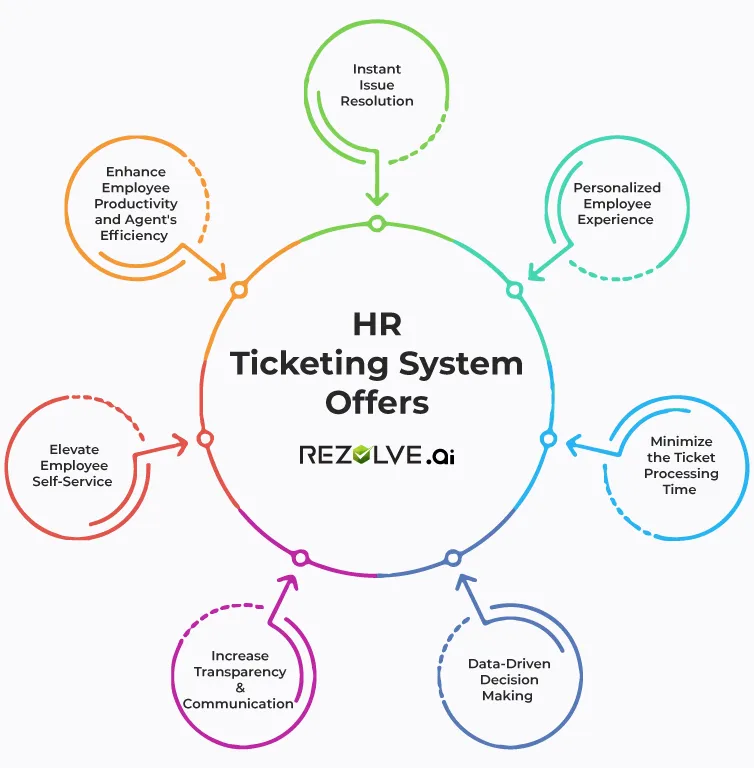Common Challenges in HR Ticketing Systems and How to Overcome Them
- marclaytonpro
- Jul 25, 2024
- 4 min read
In today’s fast-paced business environment, Human Resources (HR) departments are increasingly relying on ticketing systems to streamline their operations, manage employee requests, and ensure smooth workflows. However, while these systems can significantly enhance efficiency, they come with their own set of challenges. Understanding these common issues and knowing how to address them can make a substantial difference in optimizing your HR ticketing system.
1. Complexity in System Integration
Challenge: One of the most frequent challenges is integrating the HR ticketing system with other existing systems, such as payroll, employee management, and benefits administration. A lack of seamless integration can lead to data silos, inconsistencies, and inefficiencies.
Solution: To overcome this, choose an HR ticketing system that offers robust integration capabilities or APIs that facilitate easy connections with your existing systems. Additionally, working with a vendor that provides support for custom integrations can help ensure a smooth data flow across platforms.
2. Inefficient Ticket Categorization
Challenge: Many HR departments struggle with categorizing and prioritizing tickets effectively. Without a clear categorization system, tickets can get misplaced, overlooked, or processed out of order, leading to delays and decreased employee satisfaction.
Solution: Implement a ticketing system with customizable categories and prioritization rules. Training your HR team on best practices for categorizing and handling tickets can also help in maintaining order and ensuring timely responses.
3. Lack of Automation
Challenge: Manual handling of tickets can be time-consuming and prone to errors. HR teams often face the challenge of managing a high volume of requests without adequate automation, leading to slow response times and increased workload.
Solution: Leverage automation features within your HR ticketing system, such as automatic ticket routing, pre-set responses, and reminders. Automation not only speeds up ticket processing but also reduces the chances of human error, freeing up HR staff to focus on more strategic tasks.
4. Inadequate Reporting and Analytics
Challenge: Many HR ticketing systems lack comprehensive reporting and analytics capabilities, making it difficult to track performance metrics, identify trends, and make data-driven decisions.
Solution: Select a ticketing system that offers advanced reporting and analytics features. This will enable you to generate detailed reports on ticket resolution times, employee satisfaction, and other key metrics. Regularly reviewing these reports can help you identify areas for improvement and optimize your HR processes.
5. Poor User Experience
Challenge: A ticketing system with a complicated or unintuitive interface can frustrate employees and HR staff alike, leading to decreased usage and increased errors.
Solution: Choose a user-friendly HR ticketing system with a clean and intuitive interface. Providing training and resources to both employees and HR staff can also improve the overall user experience and ensure that everyone is comfortable navigating the system.
6. Insufficient Support for Remote Work
Challenge: With the rise of remote work, HR ticketing systems need to support a decentralized workforce. Systems that do not cater to remote work can lead to challenges in managing tickets and communicating with remote employees.
Solution: Ensure that your HR ticketing system is accessible remotely and supports features like mobile access and cloud-based operations. This ensures that all employees, regardless of location, can submit and manage tickets effectively.
7. Security Concerns
Challenge: Handling sensitive HR data through a ticketing system raises security concerns. Data breaches or unauthorized access can compromise employee information and violate privacy regulations.
Solution: Implement a ticketing system with robust security features, including encryption, access controls, and regular security audits. Ensure compliance with data protection regulations and conduct periodic security reviews to safeguard sensitive information.
8. Resistance to Change
Challenge: HR teams may resist adopting a new ticketing system due to a lack of familiarity or fear of increased workload during the transition.
Solution: Facilitate a smooth transition by involving HR staff in the selection process and providing comprehensive training. Highlight the benefits of the new system and offer ongoing support to ease the adoption process and address any concerns.
9. Inconsistent Ticket Resolution
Challenge: Inconsistencies in ticket resolution can arise from varying approaches among HR staff, leading to uneven service quality and employee dissatisfaction.
Solution: Establish clear guidelines and standardized procedures for ticket resolution. Regularly review and update these procedures to ensure consistency and fairness in handling employee requests.
10. Difficulty in Scaling
Challenge: As organizations grow, their HR ticketing system must be able to scale accordingly. A system that cannot handle increased ticket volume or additional users may hinder HR operations.
Solution: Choose a scalable HR ticketing system that can accommodate growth. Look for solutions that offer flexible plans and additional features that can be easily integrated as your organization expands.
Conclusion
HR ticketing systems are essential for managing employee requests and streamlining HR operations. By addressing these common challenges and implementing effective solutions, organizations can enhance the efficiency of their HR processes, improve employee satisfaction, and ensure smoother operations. Regularly reviewing and optimizing your HR ticketing system will help keep it aligned with your organization's needs and goals. SITES WE SUPPORT
SOCIAL LINKS




Comments